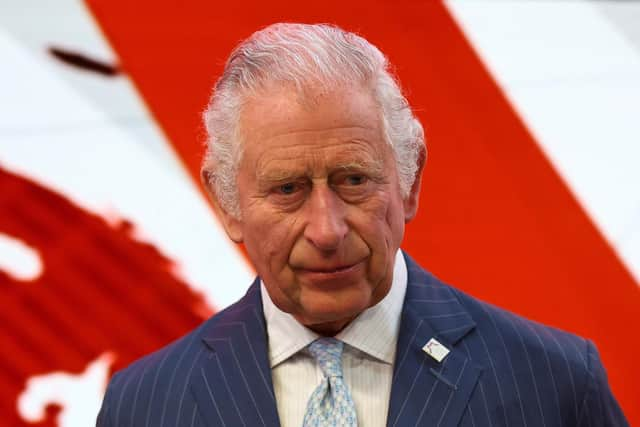Happy 100th birthday to the BBC, the nation should be grateful for it - Andrew Vine
This sprightliest of centenarians deserves the traditional message of congratulations from the King on its milestone birthday, but more than that should enjoy the gratitude and good wishes of a nation that has been – and remains – blessed to have it.
In a world where so much of what passes for news is polemic and conspiracy theory propagated by the gullible, misguided or plain malicious, the BBC’s accuracy and impartiality remain the gold standard for public-service broadcasting.
Advertisement
Hide AdAdvertisement
Hide AdIts entertainment, drama and documentary output is overwhelmingly excellent too.


Yet despite this, the BBC has in recent years faced increasingly vicious sniping from here-today-gone-tomorrow politicians who seem hell-bent on trying to wreck a national broadcaster that is the envy of the world.
Threats to its future have become wearyingly familiar from successive Conservative ministers since 2010, with clumsy attempts at intimidating its journalists from doing their job now routine.
Only last week, as the Government descended into disarray as financial markets went haywire as a result of the botched mini-budget, Business Secretary Jacob Rees-Mogg had the effrontery to suggest on Radio 4 that a legitimate line of questioning about the mess the country is in was a breach of the BBC’s duty of impartiality.
Advertisement
Hide AdAdvertisement
Hide AdAnd until she stepped aside, the former Culture Secretary Nadine Dorries displayed what appeared to be naked animosity towards the BBC, on one occasion tweeting out that the licence fee the corporation relies on would be abolished.
No matter that this had never appeared in any manifesto for government.
There is a long and dishonourable tradition of politicians attempting to shoot the messenger when the BBC does what viewers and listeners expect in holding governments to account.
In the 1980s, Margaret Thatcher was regularly infuriated by correspondents daring to question her policies, and farther back than that, Harold Wilson and Edward Heath had their feathers ruffled.
Advertisement
Hide AdAdvertisement
Hide AdBut the threat posed to the BBC’s future has never been greater than now, as it marks its 100th anniversary, thanks to the rise of streaming services and the fragmentation of an audience that once looked to it as a primary source of news and entertainment.
This has given new ammunition to politicians who consider the corporation over-mighty and would like to clip its wings.
They should lay off. The BBC is more than just a treasured institution that does a terrific job. It’s part of Britain’s identity, and its scrupulousness in being fair-minded and reflecting a wide range of views mirrors the instincts of our country’s people.
And it is to the people that it belongs, not politicians. The trust that Britain still has in the BBC to reflect momentous events has been amply demonstrated this year, first by its reporting of the war in Ukraine and then by its coverage of the Queen’s death and state funeral.
Advertisement
Hide AdAdvertisement
Hide AdThe nation instinctively turned to the BBC for both, and it didn’t let us down. Here was the corporation at its finest.
Weaken or abolish it, and what will take its place? One of the American-owned streaming platforms that pump out endless bland and brainless drama series? Hardly likely, and certainly not desirable.
Of course the BBC has its faults. It produces its fair share of rubbish in the name of entertainment and has on occasion been guilty as charged of leaning too far to the left.
It has also sometimes failed to regulate itself effectively.
Advertisement
Hide AdAdvertisement
Hide AdOverwhelmingly, though, it has served the country magnificently and continues to deliver value for money with the licence fee.
As it turns 100, the focus of whoever is in government in the months and years ahead should not be on bashing the BBC or attempting to gag its journalists.
Instead, there should be a recognition that the corporation is a bedrock of British life and needs to be helped to meet the challenges of a broadcasting landscape that its founders could not possibly have envisaged in 1922 when it first went on the air.
Funding the BBC will probably have to change, as more people – especially the young – object to paying for a service they do not use. A subscription model may be one way ahead, but those decisions should not be taken hastily or against a backdrop of animosity on the part of ministers.